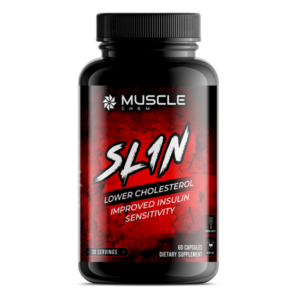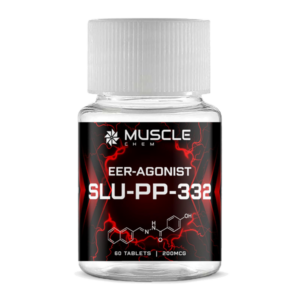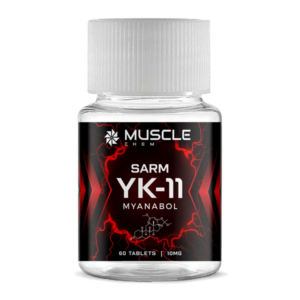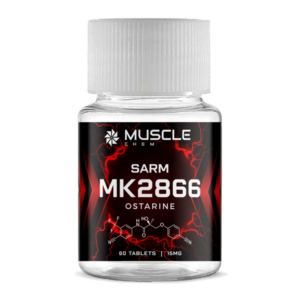Boost Your Testosterone Naturally: Essential Tips and Top Products
Understanding Low Testosterone and Its Impact on Your Health
Testosterone is a critical hormone in the male body, responsible for maintaining muscle mass, bone strength, libido, and overall vitality. When testosterone levels dip, it can lead to various health concerns, including muscle loss, increased fat, fatigue, and mood changes. Fortunately, there are several strategies to help naturally raise testosterone levels and improve your physical performance.
In this article, we’ll explore the common signs of low testosterone, why it happens, and effective ways to increase it. Whether you’re looking to enhance your muscle growth or simply feel more energetic, read on for valuable insights and recommendations.
What is Testosterone and Why Does It Matter?
Testosterone is often referred to as the “male hormone,” although women also produce small amounts of it. In men, testosterone is essential for:
- Muscle development: It helps in building lean muscle mass and strength.
- Fat distribution: Testosterone influences how fat is stored in the body.
- Sexual health: It plays a crucial role in libido and erectile function.
- Energy levels: Testosterone contributes to overall vitality and stamina.
As you age, your testosterone levels naturally decline, especially after the age of 30. However, factors such as stress, poor lifestyle choices, and lack of exercise can accelerate this process, leading to the symptoms of low testosterone.
Common Signs of Low Testosterone
Low testosterone can manifest in several ways, affecting both physical and mental health. Here are some of the most common symptoms:
- Decreased Muscle Mass
Testosterone is directly involved in muscle development. When testosterone levels drop, it can lead to a decrease in muscle mass and overall strength. - Increased Fat Gain
Low testosterone is often associated with an increase in body fat, particularly around the abdomen. It can also result in gynecomastia (enlarged breasts in men), making it harder to maintain a lean physique. - Low Energy Levels
A lack of testosterone can cause significant fatigue, even after adequate rest. This drop in energy can make it difficult to stay motivated for workouts and daily activities. - Mood Changes and Depression
Testosterone plays a role in regulating mood and mental health. Low levels can lead to irritability, difficulty concentrating, and even depression. - Reduced Libido
One of the most noticeable effects of low testosterone is a reduced sex drive. This can affect both the desire for sexual activity and overall sexual performance. - Erectile Dysfunction
Low testosterone can interfere with the body’s ability to achieve or maintain an erection, leading to erectile dysfunction in some men. - Loss of Body Hair
Testosterone is essential for the growth of facial and body hair. A decrease in this hormone can lead to thinning hair or unexpected hair loss.
What Causes Low Testosterone?
While testosterone levels naturally decrease with age, several factors can contribute to a significant drop in testosterone, including:
- Stress: Chronic stress leads to higher levels of cortisol, a hormone that can suppress testosterone production.
- Poor Diet: Diets lacking in essential nutrients, such as healthy fats, can impact testosterone production.
- Lack of Sleep: Inadequate sleep affects the body’s ability to produce testosterone. Most testosterone production occurs during sleep.
- Sedentary Lifestyle: Lack of physical activity, especially strength training, can result in lower testosterone levels.
- Alcohol and Smoking: Excessive alcohol consumption and smoking can lower testosterone levels.
Additionally, medical conditions like obesity, diabetes, and sleep apnea can also contribute to lower testosterone levels.
How to Increase Testosterone Naturally
Increasing your testosterone levels doesn’t always require medication or hormone therapy. There are several natural ways to boost testosterone and improve your overall health and physique:
-
Exercise Regularly
Exercise, particularly strength training, is one of the most effective ways to boost testosterone. Lifting weights and engaging in high-intensity interval training (HIIT) can significantly increase testosterone production. These forms of exercise challenge the body, promoting muscle growth and hormone secretion.
-
Optimize Your Diet
Certain foods are known to support testosterone production. To boost testosterone naturally, ensure your diet includes:
- Healthy fats: Avocados, nuts, olive oil, and fatty fish like salmon are rich in omega-3 fatty acids, which support hormone production.
- Protein: Protein from lean meats, eggs, and legumes helps in muscle recovery and growth, indirectly supporting testosterone levels.
- Zinc-rich foods: Zinc is a mineral essential for testosterone production. Foods like oysters, beef, pumpkin seeds, and spinach are excellent sources.
-
Prioritize Sleep
Quality sleep is crucial for maintaining healthy testosterone levels. Aim for 7-9 hours of uninterrupted sleep each night. During deep sleep, your body produces the most testosterone, which is why consistent rest is essential.
-
Manage Stress
Chronic stress elevates cortisol levels, a hormone that can inhibit testosterone production. Practicing stress-reducing activities like meditation, deep breathing, yoga, or simply spending time in nature can help keep cortisol levels in check and promote healthy testosterone levels.
-
Get Sunlight Exposure
Vitamin D plays a role in testosterone production, and one of the best ways to get vitamin D is through sunlight exposure. Aim for at least 15-20 minutes of sun exposure each day to support testosterone production and overall well-being.
-
Limit Alcohol and Quit Smoking
Both alcohol and smoking can have a negative impact on testosterone levels. Limiting alcohol intake and quitting smoking can help maintain healthy testosterone levels.
Product Recommendations from MuscleChem
For those looking to take an additional step in boosting testosterone and enhancing muscle growth, MuscleChem offers a range of high-quality products that can complement your efforts. Below are some top recommendations:
-
RAD-140 (Testolone)
RAD-140 (Testolone) is a potent SARM that mimics the effects of testosterone, helping to increase muscle mass, strength, and endurance. Take 10-20 mg daily to boost performance and achieve lean muscle growth. It’s ideal for enhancing muscle definition and promoting fat loss.
-
MK-677 (Ibutamoren)
MK-677 (Ibutamoren) is a growth hormone secretagogue that helps increase levels of growth hormone in the body, indirectly boosting testosterone. It supports muscle growth, fat loss, and improved recovery times. Take 10-25 mg per day for optimal results.
-
LGD-4033 (Ligandrol)
Known for its ability to build lean muscle and improve strength, LGD-4033 (Ligandrol) is a great SARM for those looking to enhance their training results. A daily dose of 10 mg is typically recommended to see noticeable improvements in muscle mass and strength.
-
S-23
S-23 is a potent SARM designed to promote muscle hardening and fat loss. It’s ideal for individuals looking to refine their physique and improve vascularity. For maximum results, take 10-20 mg daily.
Post-Cycle Therapy (PCT) After Using SARMs
After completing a cycle of SARMs like RAD-140 or LGD-4033, it’s essential to use Post-Cycle Therapy (PCT) to help restore your body’s natural testosterone production. PCT helps to rebalance hormone levels, reduce estrogenic side effects, and maintain the gains you’ve made.
MuscleChem offers effective PCT supplements to support your recovery and keep your testosterone levels in check.
Final Thoughts
Low testosterone can significantly affect your health, muscle growth, and overall well-being. By incorporating lifestyle changes such as proper diet, exercise, and sleep, you can naturally boost your testosterone levels. For those looking to accelerate their results, MuscleChem offers high-quality supplements like RAD-140, MK-677, and others that can help you optimize testosterone levels and achieve your fitness goals.
Always consult with a healthcare professional before starting any new supplement regimen to ensure it’s safe and suitable for your needs.












